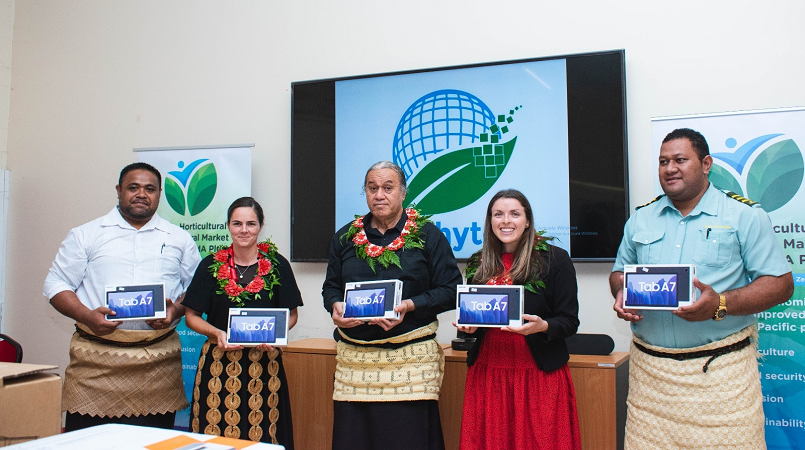
Tonga is set to streamline its phytosanitary certification process electronically to better facilitate agricultural trade facilitation and safeguard food security in the region.
The Ministry of Agriculture and Food, Forestry and Fisheries (MAFF) has rolled out the Generic EPhyto National System (GeNS) in Tonga project which will see a gradual migration over to the digital-based “ePhyto” (short for electronic phytosanitary) certificates which were traditionally paper-based certificates.
The trade in many plant-based goods require phytosanitary certificates issued by the National Plant Protection Organisation (NPPO) of any exporting country. This indicates that export consignments of plants, plant products or other regulated articles meet specified import requirements.
To support MAFF’s shift to ePhyto, the Pacific Horticultural and Agricultural Market Access Plus Program (PHAMA Plus) recently handed over digital equipment needed for the issuance of ePhyto through the GeNS portal.
The equipment included desktop computers, printers, laptop, external hard drives and tablets. The support is part of a collaboration between MAFF and PHAMA Plus, supported by Australia and New Zealand, to successfully implement the GeNS project.
“The equipment that we are handing over today will guarantee that the ePhyto system will be put into practical use for the benefits the exporters and the farmers in Tonga through improving access, sharing, approving and issuance of an electronic Phytosanitary Certificate.” said Cassie Cohen, the First Secretary of the Australian High Commission to Tonga during the handover event.
ePhyto enables governments to share phytosanitary data well before a commodity’s arrival. As a result, importing countries save time in determining compliance and can address any biosecurity or documentary issues directly with the exporting authority.
“The ePhyto system leads to better regulation of plant exports and imports across the Pacific region and provides efficient market access opportunities at a reduced operational cost. This support is a boost to better serving the people of Tonga through the efficient issuance and exchange of phytosanitary certificates between the various competent authorities,” MAFF chief executive officer Dr Viliami Manu said.
Local exporters have also welcomed the rollout of the ePhyto project, effectively allowing them to obtain phytosanitary certificates from overseas biosecurity authorities quicker and more cost efficient.
“With ePhyto, we will save a lot of money as we previously relied on sending phytosanitary certificates and documentation via courier as they didn't accept copies, only originals in order to export. This new system will be more secure and cost-effective,” said Fetongimoeata Lasike of SUL Farms Nukunuku.
PHAMA Plus Country Manager Tevita Lautaha reiterated the program’s focus on supporting efforts that encouraged better access to markets and trade facilitation.
“We are pleased to support MAFF with the implementation of the ePhyto system to ensure the continuity of trade and improve Tonga’s agricultural trade efficiency by reducing the time and cost of sending paper certificates from country to country,” Mr Lautaha added.
